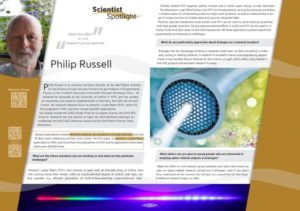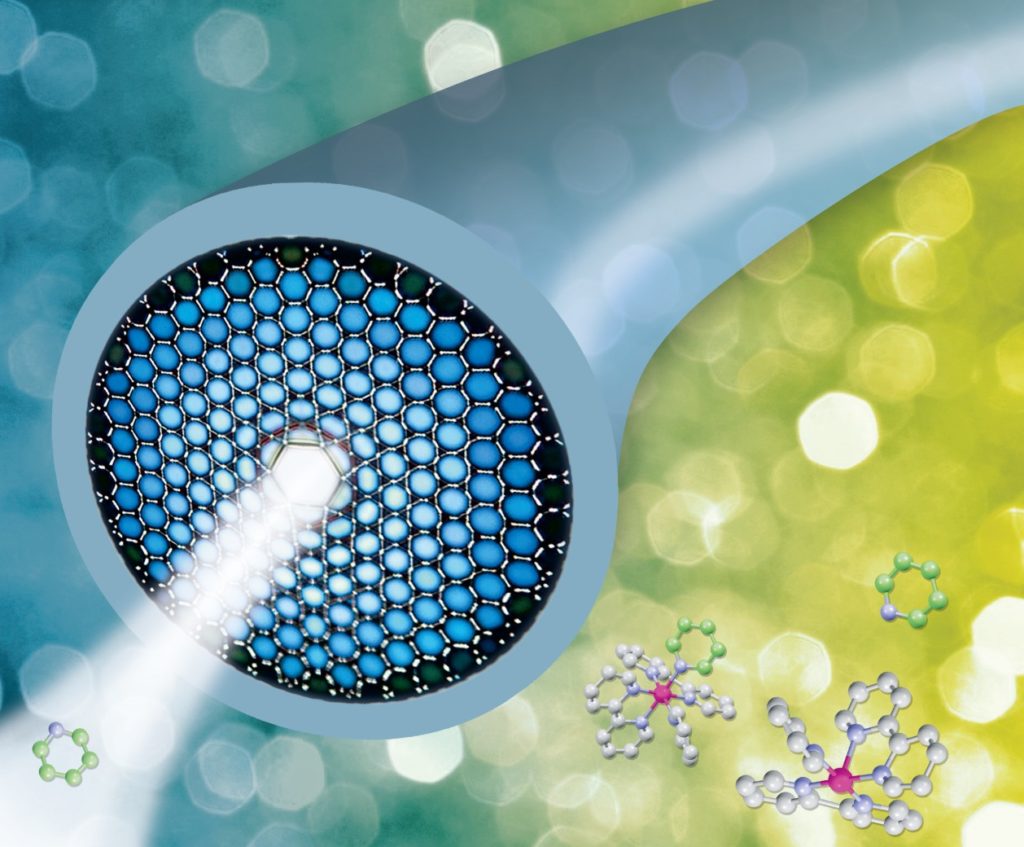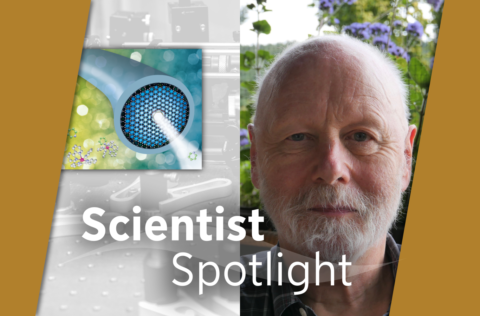Philip Russell
Philip Russell is an emeritus founding Director at the Max-Planck Institute for the Science of Light and was formerly Krupp Professor of Experimental Physics at the Friedrich-Alexander-Universität Erlangen-Nürnberg (FAU). He obtained his doctorate at the University of Oxford in 1979, and has worked at universities and research establishments in Germany, the USA, the UK and France. His research interests focus on photonic crystal fibers (PCF), which he first proposed in 1991, and their myriad scientific applications.
His awards include the 2005 Körber Prize for European Science, the 2013 EPS Prize for Research into the Science of Light, the 2014 Berthold Leibinger Zukunftspreis, the 2015 IEEE Photonics Award and the 2018 Rank Prize for Optoelectronics.
Recent publications include efficient quantum up-conversion of single photons, and mid-IR fibre lasers delivering sub-two-cycle pulses. His first paper on photonic crystal fibers goes back to 1996, and since then his publications on PCF and its applications have been cited some 40,000 times.

Photonic crystal fibers (PCF)—thin strands of glass with an intricate array of hollow channels running along their length—offer an unprecedented degree of control over light, making possible e.g. efficient generation of multi-octave-spanning supercontinuum light.
Chirally twisted PCF supports optical vortices and in some cases strong circular dichroism.
The dispersion in gas-filled hollow-core PCF can be adjusted by varying the pressure, providing a simple means of compressing pulses to single-cycle durations, as well as underpinning a range of unique sources of tunable deep and vacuum ultraviolet light.
Particles optically tweezered inside hollow core PCF can be used to sense physical quantities with high spatial resolution. Strong optomechanical effects in solid-core PCF can be used to robustly mode-lock fiber lasers at few-GHz frequencies. All these applications present significant experimental and theoretical challenges.

Erlangen has the advantage of being a relatively small town, so that everything is within easy cycling or walking distance. In addition to excellent science and engineering departments it has the Max Planck Institute for the Science of Light, which offers many Master‘s and PhD projects and excellent research funding.

Make the effort to visit research group websites and read a few recent papers on optics-related research carried out in Erlangen. Even if you don‘t fully understand all the science, this will give you a good feel for the range of different research topics on offer.
